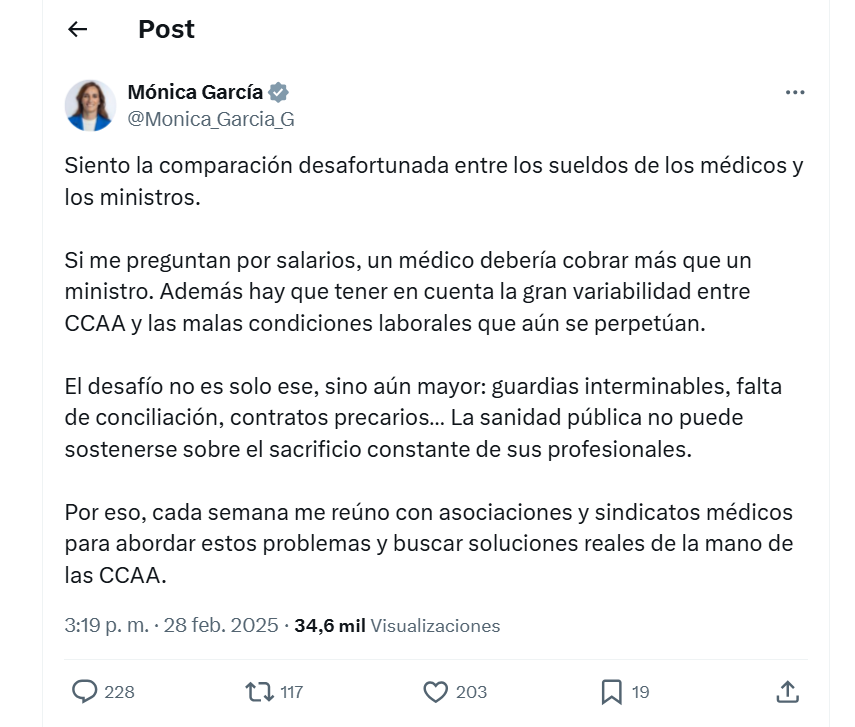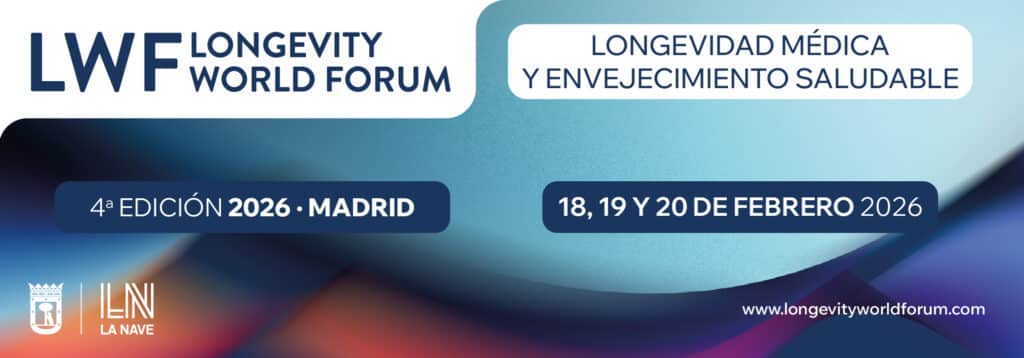An analysis published by The Wall Street Journal exposes the growing distrust in the US healthcare system, based on real testimonies from patients and doctors. The article includes cases such as Sylvia O'Brienwho struggled for years to get doctors to recognise her husband's symptoms of dementia, or that of Kitty Petersonwho, after feeling neglected by doctors, turned to online forums and alternative treatments. She also mentions Jeremy Gurewitzwho, after his mother's bad experience with the healthcare system, founded a company to help patients navigate the medical bureaucracy.
In contrast, the Health Barometer 2024 of the Spanish Ministry of Health presents an overview of the positive and stable of the health system in Spain. However, when the two approaches are compared, there is clear evidence that inconsistencies and omissions in the official Spanish version, which casts doubt on the accuracy of the information presented by the government.

1. Perception of health care: reality vs. survey
Spanish Ministry of Health version:
- The 83.1% of patients values Primary Care positively.
- The 81.8% of patients who saw a specialist are satisfied.
- The 87.9% of hospitalised patients report that they have been treated well.
What The Wall Street Journal says:
- Trust in doctors has fallen drasticallywith a decrease from 67% to 53% in positive perceptions in the US.
- Medical visits are increasingly brief and depersonalisedThis leads to frustration among patients.
- Many citizens seek medical information on social media and Googlereflecting a loss of confidence in traditional medical diagnosis.
Inconsistencies:
- The high reported satisfaction by the Spanish Ministry of Health is not in line with the reality observed in similar health systems..
- No mention is made of problems such as depersonalisation of carethe lack of communication between specialists or the medical staff burnoutwhich are recurrent complaints in other countries.
2. Waiting lists and accessibility
Spanish Ministry of Health version:
- 22.3% of patients in Primary Care were seen the same day or the next day.
- The average waiting time for primary care is 8.7 days..
- The 38% of patients waited more than three months to be seen by a specialist.
What The Wall Street Journal says:
- Delay in care is a key factor in the loss of confidence in the system.
- Many patients seek private care or alternative information due to the slowness and unresponsiveness of the public system.
- Difficulty in obtaining timely appointments leads many people to opt for self-medication or seeking help on social networks.
Inconsistencies:
- Yes almost half of patients have to wait more than three months for a specialistHow is it possible that 81.8% rate the care received positively?
- No problems mentioned structural as the lack of medical personnel or the saturation of the system, which are recurrent themes in citizens' complaints.

3. Equity in health care
Spanish Ministry of Health version:
- No inequalities of care are identified by socio-economic status, age or country of origin.
- However, a 38.7% perceives inequality according to autonomous community and a 35.5% believes that technology management influences quality of care.
What The Wall Street Journal says:
- In the US, there are evidence of medical biaswhere certain groups (older people, ethnic minorities, uninsured patients) receive worse medical care.
- The lack of personalised attention and the medical bias generate greater distrust in certain sectors of the population.
- Patients should repeatedly explain their history to different doctorswhich leads to a loss of confidence in the continuity of treatment.
Inconsistencies:
- The Ministry of Health downplays inequalities in access to health care in Spain.
- There is no mention of the increasing use of private healthcarewhich has increased significantly in recent years.
- Nor does it recognise the impact of bureaucracy and lack of coordination among doctorsThis is an obvious problem in other countries.
4. Use of digital health and alternative medicine
Spanish Ministry of Health version:
- The 40.1% has ever accessed his or her electronic health record.
- The 60% knows that you can pick up medicines at any pharmacy with an electronic prescription..
What The Wall Street Journal says:
- Many patients have abandoned traditional healthcare and resort to alternative medicine lack of trust in doctors.
- The number of people seeking information is growing on TikTok, Google or health forumsinstead of consulting a professional.
- Patients with chronic diseases pay for medical defenders to navigate the bureaucracy of the healthcare system.
Inconsistencies:
- The Ministry presents the digitisation of healthcare as a breakthrough, but no mention of the impact of the digital divide in care.
- Omitted is the the rise of alternative medicine or the fact that many patients prefer online forums to seeing a doctor.
A distorted official version of reality
The Health Barometer 2024 of the Spanish Ministry of Health presents a made-up vision of the health system, in which structural problems are minimised and omit key issues such as:
- Mistrust of the system and the increasing search for medical alternatives.
- Excessive waiting time for specialists and surgeries.
- The impact of medical saturation in the quality of care.
- Lack of real equity in access to health care according to autonomous community or socio-economic level.
While the analysis based on the US case shows a widespread dissatisfaction with the health systemthe Spanish version seems to focus on minimising problems and highlighting positive figures without a thorough analysis of the actual patient experience.
Although public health care in Spain is of high quality in comparison with other countries, the increasing use of private insurance, dissatisfaction with waiting lists and the search for medical alternatives reflect a more complex reality that the Ministry is not fully addressing.






